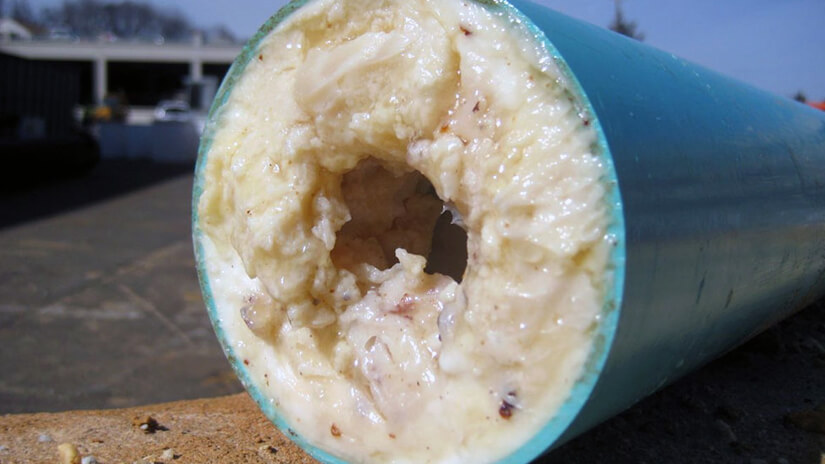Your kitchen sink gets used daily, and the risk of clogging up your sink drain is relatively high, considering what is being drained down the pipes.
During washing and cooking, you are bound to wash down food items and fat and grease from cooking products, which can impact clogged sink drain.
This can have a severe effect on your drain pipes. The build-up of oils and fats will create a barrier inside your pipelines, which can cause grease-clogged pipes or grease-clogged pipes. Water will struggle to flow smoothly down the sink drain, leading to foul odours and potential flooding.
A blockage in your kitchen sink is far from ideal—it can lead to significant plumbing headaches. If you ignore grease-clogged pipes and similar issues, you might end up with repairs that could cost a small fortune down the road.

What happens if oil goes down the drain?
Oil or grease from cooking can be quite thick and, once cooled, it solidifies into fatty deposits that stick to your pipes. The more cooking oil, like bacon grease, you pour down the sink, the bigger these deposits grow, eventually causing a grease-clogged drain.
Once oils and fats have been in your clogged drains long enough, they can build up a stink that needs fixing. It’s essential to get onto this quickly.
Heavily corroded pipes can suffer severe damage, possibly leading to pricier repairs. Corrosion, combined with grease, often clogs pipes. At times, just removing and cleaning a sink trap may be simpler than using chemicals or a cleaning machine.
Clogs in your drainage can restrict water flow, causing issues around the house. If left untreated, water might back up from the sink, risking damage to your home—plus, those pesky drain flies could make an appearance.
Not to mention the frustration of a slow-draining sink and stinky drain area! We can show you how to care for a drain filled with oils and fats. There is no need to call a plumber in Sydney. These steps and tips can be carried out simply with household products.
How do you get rid of clogged sink fat?
Plunge
If you can tell that your sink is backing up or sluggish, an excellent old-fashioned plunger is very effective. A plunger works by applying pressure and suction.
Place the plunger cup over the drain, hold the handle with both hands, and pump it up and down. Keep the drain covered the entire time. The suction and pressure should help move the clogged gunk—repeating the process a few times might be necessary.
Baking Soda and Vinegar
You can use boiling water, hotwater, and a combination of vinegar and baking soda for an environmentally friendly drain cleaner. You will be able to find these items in your kitchen. You only need to pour 1 cup of boiling water down your sink. You are followed by 1 cup of baking soda and 1 cup of vinegar.
Cover the drain with a plug and let the hot water mixture sit for 5 minutes. Pour 1 cup of boiling water down the drain to finish. Test your sink to see if the clog has been removed.
The two products mix to create a reaction that eats away at oils and fatty substances. Your hot water mixture is perfect; you don’t have to use harsh chemicals to harm the environment.
Besides dish soap, vinegar, and baking soda, commercially available drain cleaners might help—just be sure to follow up with hot water. Need more options? Check out this list of more ways to unblock a drain. Ideally, calling a professional drain cleaner isn’t your last option.
Need a Plumbing Service?
How do you prevent a greasy sink?
A top tip for avoiding greasy clogs is simple: never pour veggie oil, cooking grease, or any fatty liquids down the sink or disposal. This stuff hardens on your pipe walls—every time warm or cold water rushes through, more solid oils build up.
To dispose of oils properly, just pour them into a bag or container and toss it in the trash. Doing so ensures the oil doesn’t mix with other liquids and create pipeline chaos. Learn more about this proper oil disposal.














